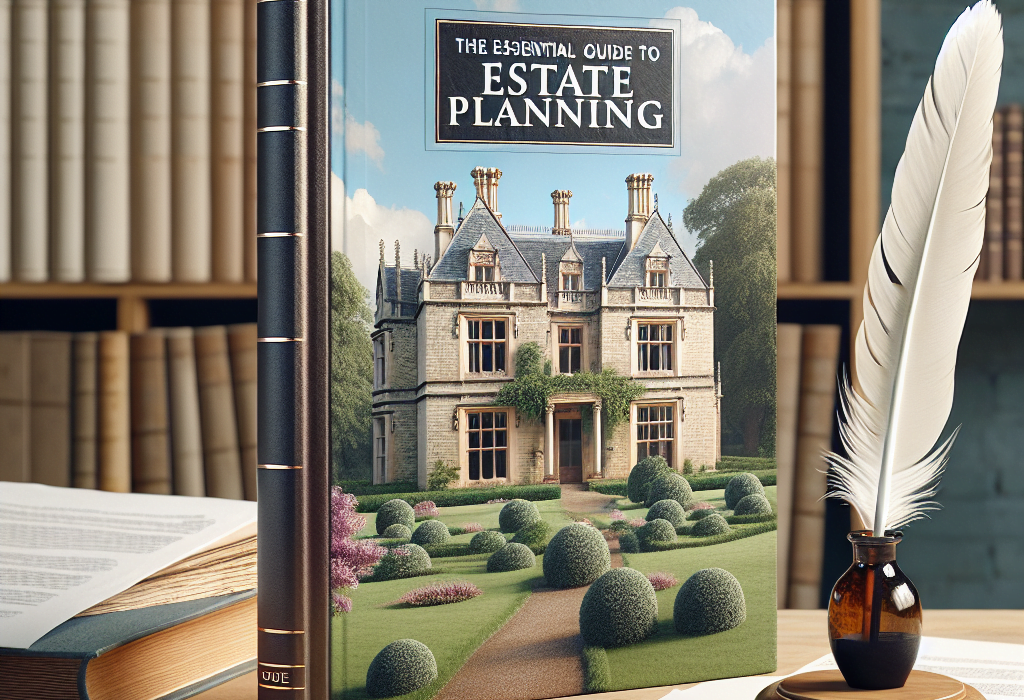The process of organizing the distribution of one’s estate to their loved ones after death is traditionally known as estate planning. It involves planning for not only the certainty of death but also the possibility of physical or mental incapacity. This guide aims to provide a detailed overview of the different facets of estate planning.
Understanding Estate Planning
Estate planning is much more than just drafting a last will and testament, In essence, it is the development of a master plan for managing your total wealth while you’re alive, distributing your estate how you choose after your death, and taking care of the financial and legal implications of death.
Importance of Estate Planning
Estate planning is crucial for individuals and families for various reasons. The most significant benefits include reducing taxes, avoiding probate, distributing assets according to one’s wishes, and planning for incapacity. Your estate planning needs will vary depending on your age, health, life stage, goals, the type of assets you own, the value of your assets, and many other factors.
Key Elements of Estate Planning
1. Last Will and Testament
Your last will and testament provide for the distribution of certain property owned by you at the time of your death and that is part of the probate estate. It allows you to decide how your belongings, such as cars or family heirlooms, should be distributed.
2. Durable Power of Attorney
With a Durable Power of Attorney, you can empower another person—known as an attorney-in-fact—to act on your behalf for financial purposes when and if you ever become mentally incapacitated.
3. Beneficiary Designations
Some of your assets will pass to your heirs without being dictated in the will, such as 401k retirement plans, life insurance, and other assets for which the owner has designated a beneficiary.
4. Letter of Intent
A letter of intent is simply a document left to your executor or a beneficiary that defines what you want done with a particular asset or even your funeral after your death.
5. Healthcare Power of Attorney
By having a Healthcare Power of Attorney, you can ensure that someone is there to make healthcare decisions for you when you cannot make them for yourself.
Considering Digital Estate Planning
In the modern age, many of our documents, assets, and correspondences are digital. Therefore, it is essential to consider digital estate planning. This involves organizing all your digital property and assets and making arrangements for what should happen to that digital legacy after your death.
Seek Legal Advice
Estate planning can be complex and confusing without professional help, especially when dealing with large estates or complicated family situations. Therefore, it is always recommended to consult with a competent attorney or financial advisor to ensure that all legal requirements are met and that your wishes are clearly communicated and can be legally enforced.
Conclusion
Estate planning is a vital part of financial planning that ensures that your loved ones are provided for and your assets are distributed according to your wishes. It gives you control over the things you care about, even when you’re physically or mentally unable to do so. Remember that estate planning is not a one-time event, but a lifelong process. It should be updated frequently to reflect changes in your life, your goals, your assets, and the law.
FAQs
1. What’s the difference between a last will and a living will?
A last will details what you want to happen to your property after your death. A living will, on the other hand, explains what actions should be taken in case of incapacitation and can’t make decisions for yourself.
2. Do I need a lawyer to create an estate plan?
It’s possible to do some basic estate planning yourself. However, because each person’s situation is unique, it can be beneficial to consult a lawyer or financial advisor.
3. Can I change my estate plan once I’ve created it?
Yes. In fact, it’s a good idea to revisit and revise your estate plan every few years and after major life changes such as marriages, divorces, births, and deaths.
4. What happens if I die without an estate plan?
If you die without having written and signed a will, you are said to have died “intestate.” When this happens, the intestacy laws of the state where you live determine how your property is distributed.
5. What should I include in my estate plan?
An estate plan should include a last will and testament, a durable power of attorney, a healthcare power of attorney, and any other directives or legal documents related to your assets or treatments you do or do not want to receive. Always speak to a professional to better understand what documents you might need for your particular situation.













